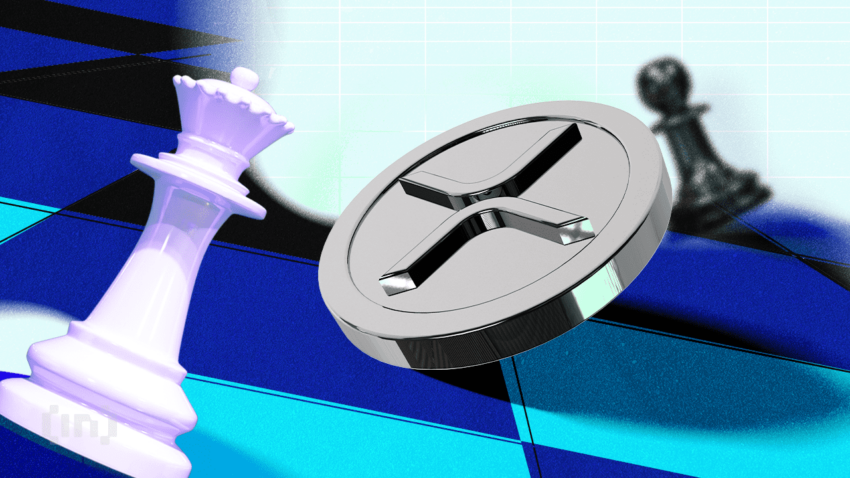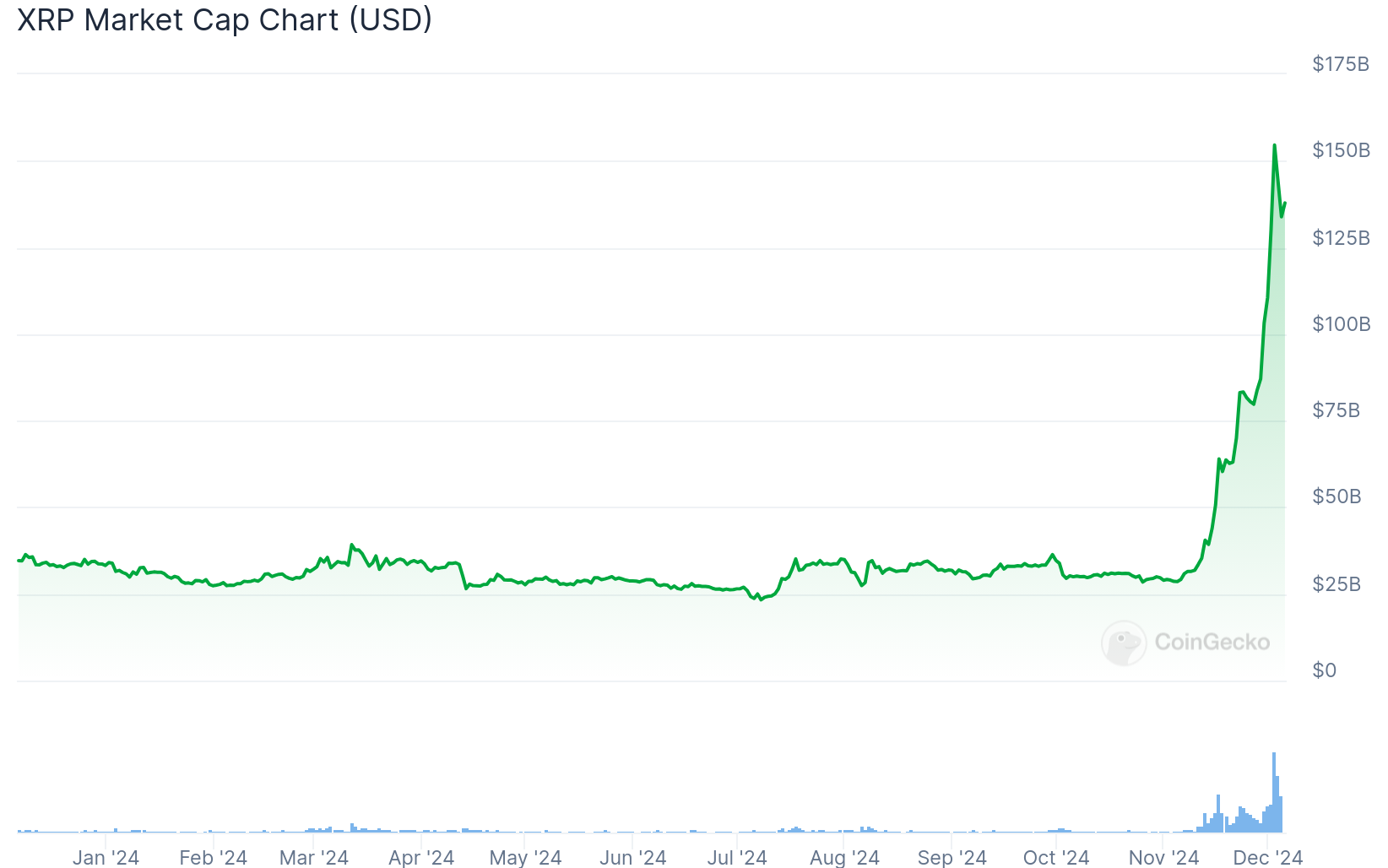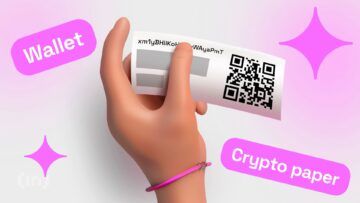XRP wallets are in many ways just like any other cryptocurrency wallet and can act as a manager for one or several addresses on the XRP blockchain. While there are many different types of services available, some are more popular and trusted than others. That’s why BeInCrypto has created a useful guide for you to choose the best XRP wallet.
KEY TAKEAWAYS
➤ Atomic Wallet, Edge, GateHub, Ledger, and SafePal are highlighted as the top choices for securely storing XRP in 2024.
➤ XRP is a cryptocurrency created by Ripple for low-cost, fast cross-border payments, targeted at banks and financial institutions.
➤ XRP wallets require a minimum “Base Reserve” deposit of 20 XRP to become functional, which cannot drop below this threshold.
➤ Major exchanges like Coinbase, Binance, and Kraken offer XRP trading and direct purchases, typically requiring KYC procedures for transactions.
Top 5 wallets in 2025

Let’s say you’ve purchased your first XRP on an exchange. Unless you are planning to actively trade with it, you should really store it privately as soon as possible. Even honest exchanges can be vulnerable to hacks and other internal errors. They certainly aren’t insured by the government, as is the case with banks and the FDIC in the U.S.
Hence, personal assets that are just being held for long-term appreciation need a higher degree of control and security. To that end, there are many solid options available for storing XRP safely. We’re going to cover some of the most popular wallets available out there.
1. Atomic Wallet
Atomic Wallet is non-custodial, which is generally considered a solid choice by most cryptocurrency enthusiasts. Options for exchanging currencies are built directly into the wallet interface, and you can export and back up all of your private keys at any time. This means that you don’t have to trust that the app will keep being supported to trust it with your money. The wallet is regularly updated and seems to have a pretty healthy community surrounding it.
Edge is only available on iOS and Android. It puts the user in control of their account with no third-party access, it is also open source, allows for exchanges within the app itself and supports many other currencies on top of XRP. Edge is supports 10 languages and is available in 179 countries.
The wallet uses zero-knowledge technology, PIN or Biometric login, and is encrypted on the client-side server. These features segregate user’s information from the wallet provider, giving them control over their personal data.
3. Gatehub
GateHub supports XRP, USD, EUR, BTC and ETH pairings, so it isn’t as verbose as some exchanges, but it also offers a pretty effective wallet for storing your assets. It should be noted that GateHub is custodial. You can secure your GateHub wallet with convenient features like multi-signatures, a fraud shield, and protection by Coincover.
4. Ledger
XRP users can choose either the Ledger Nano S or X, as both offer support for the asset. The benefits are not only the security and convenience aspects, but also the fact that the Ledger Nano series offers support for many other projects all on the same device. Hence, if you’re into more than just XRP and want secure, long-term storage, this may be a one-stop solution.
5. SafePal
SafePal is a software development company that makes both hot and hardware wallets. Some of its products include the S1 and X1 hardware wallets. The software wallets include a mobile application and browser extension. SafePal wallets are non-custodial. The provider does not store any sensitive information from the user. The wallets can also filter and blacklist malicious DApps.
Top XRP wallets compared
| Wallet | Type | Platform | Assets | Custody | Open-source |
|---|---|---|---|---|---|
| Atomic Wallet | Mobile and desktop | Windows, Mac, Linux, Android, and iOS | 1,000+ | Non-custodial | No |
| Edge | Mobile | Android and iOS | 130+ | Non-custodial | Yes |
| GateHub | Mobile | Android and iOS | 100+ | Custodial | No |
| Ledger | Hardware | N/A | 1,000+ | Non-custodial | No |
| SafePal | Mobile, desktop, and browser extension | Android, iOS, Chrome, Firefox, and Microsoft Edge | 100+ million | Non-custodial | X1 wall is open-source |
What is XRP?

XRP is a cryptocurrency created by the company Ripple, though the names are often used interchangeably. Brad Garlinghouse and Christopher (Chis) Larsen co-founded Ripple Labs in 2013. Unlike projects like Bitcoin and Ethereum, XRP is a cryptocurrency meant for low-cost payments, and remittances or cross-border payments.
On December 22, 2020, the U.S. Securities and Exchange Commission (SEC) filed a lawsuit against Ripple Labs, Garlinghouse, and Larsen. It alleged that they raised over $1.3 billion through an unregistered securities offering by selling XRP tokens.
In 2024, a judge ruled the XRP itself is not a security. The following year, on the heels of Bitcoin nearing $100,000, the SEC dropped the suit after Ripple paid a $125 million civil penalty for improperly selling its XRP token. The price of XRP sky-rocketed as a result, flipping the market cap of Solana and USDT shortly after.

XRP for bank remittances
XRP is primarily targeted to banks and other financial institutions. It is meant for fast, cheap global cross-border payments. To this day, it is pushing to establish itself as the best solution for legacy finance.
Bitcoin and many other popular digital assets are unregulated and generally not ready for mass adoption. By controlling a centralized network, Ripple can offer speeds for value transfer that are currently hard to match by decentralized blockchains.
XRP wallet base reserves
You should be aware that XRP wallets need to have a minimum deposit . This is called a “Base Reserve”. This is done before they become active for moving funds. Currently the base reserve is 20 XRP, though this could change in time.
The technical details concerning why this is the way XRP works can be explored here. Basically, any non-custodial wallet (and some custodial ones) will require this 20 XRP to be in the wallet before it is truly functional.
The balance of the wallet cannot drop below 20 or it will become effectively deactivated. Though it can be reactivated by further funding it. In essence, creating a working XRP address requires a base payment that cannot be extracted afterward.
Where to buy some XRP
Many of the major exchanges already offer XRP on their platforms. Some of the top choices include the following platforms:
They offer buying and trading options, and this only scratches the surface. Some of these sites will allow direct fiat purchases of XRP. When using either a credit card or bank deposit, be aware that they virtually all enforce Know-Your-Customer (KYC) policies.
This is before allowing you to make a fiat purchase or possibly move the money off of the exchange. It also means that you need to verify an email, phone number, physical address and some form of ID. It is also plausible that KYC procedures will come into play when you try and move the funds back off of the exchange, at least for larger amounts.
XRP has its own caveats
There are many XRP wallets that you can test for storing your XRP. Still, this guide should have given you the basic means to begin exploring your options reasonably safely. Like with any cryptocurrency, you should always exercise caution and do your own research when choosing a wallet. With just a bit of education, practice and following these tips, you’ll be an XRP pro in no time.
Frequently asked questions
What is XRP?
What is Ripple?
What is a wallet?
What are hot and cold wallets?
Disclaimer
In line with the Trust Project guidelines, the educational content on this website is offered in good faith and for general information purposes only. BeInCrypto prioritizes providing high-quality information, taking the time to research and create informative content for readers. While partners may reward the company with commissions for placements in articles, these commissions do not influence the unbiased, honest, and helpful content creation process. Any action taken by the reader based on this information is strictly at their own risk. Please note that our Terms and Conditions, Privacy Policy, and Disclaimers have been updated.









